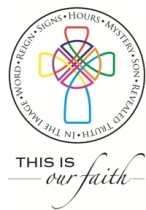Brooke Gordon – English Teacher and Literacy Development Officer
2.1 Learners’ Experiences
5.1 The Curriculum, 5.3 Meeting Learning Needs and 5.9 Improvements Through Self-Evaluation
I’ve recently taken on the post of Literacy Development Officer. As part of my post I decided to focus on improving and supporting the learning and teaching of vocabulary across the curriculum. My aim is to encourage different approaches to the teaching of, and rich learning of, new vocabulary (see my Prezzi which can be accessed by clicking the above picture). With support from Laura Compton, I have created a learning group on GLOW which acts as a discussion board for myself and some colleagues to share and try new ideas, as well as reflect upon the effectiveness of different strategies.
Using this platform has been a huge learning curve for all of us, but I feel it is an effective way to support one another as we move through our own enhanced pedagogy. We are able to share resources as well as ask questions and advice as we devise and develop our ideas throughout the year.
The research I carried out regarding the learning of vocabulary was very interesting and and I have found that working with colleagues from Murrayfield Language Centre has also helped me to channel my ideas. I then linked these ideas to the Literacy Framework and Pathways and presented this project to a handful of colleagues from across the authority. Moving forward, we hope to continue supporting one another and offering advice as the year progresses.














